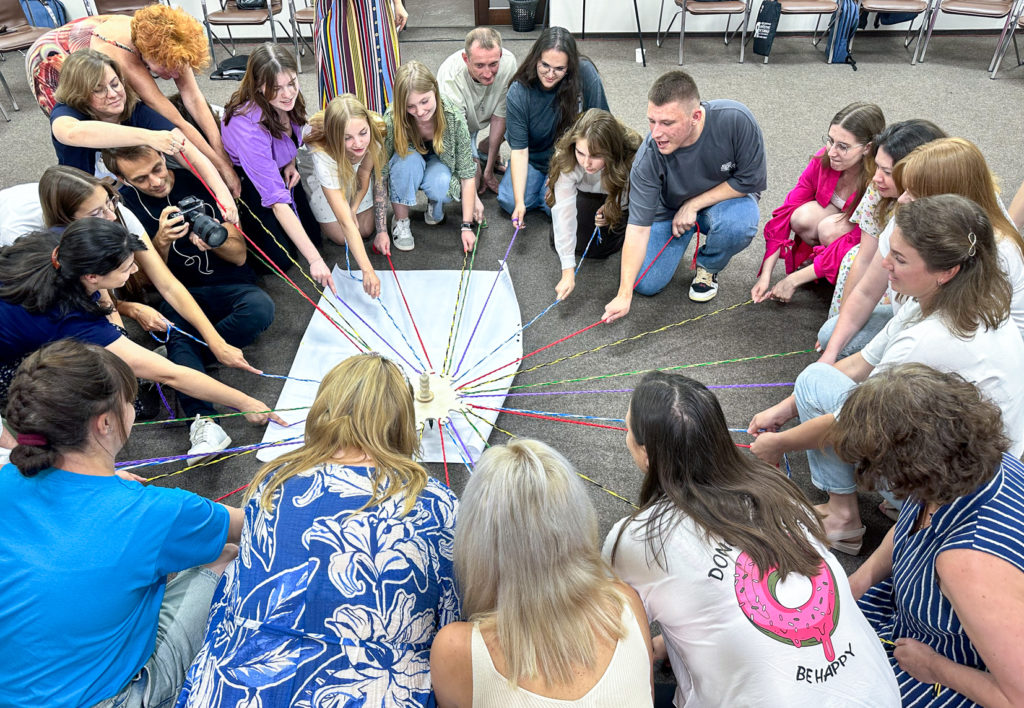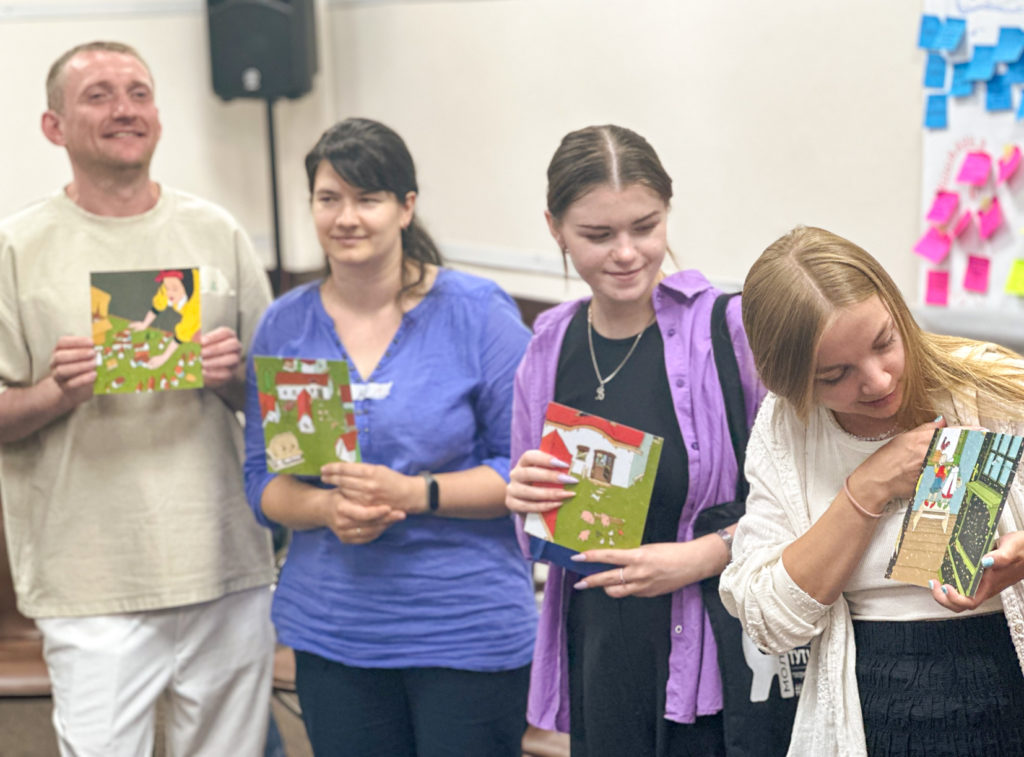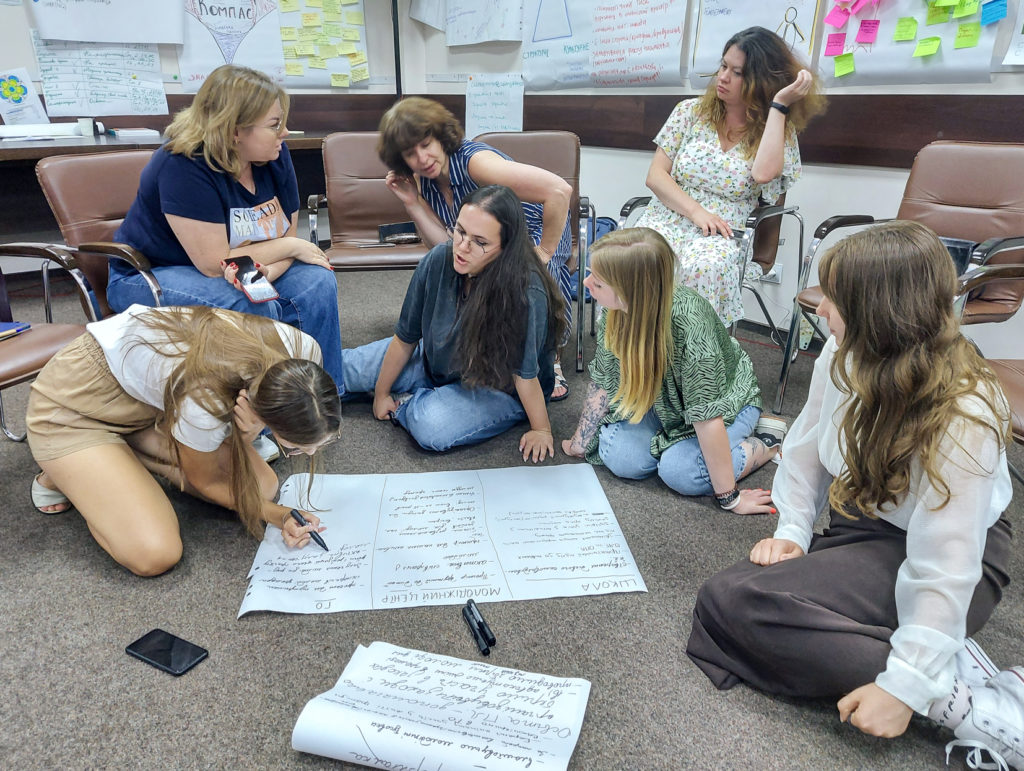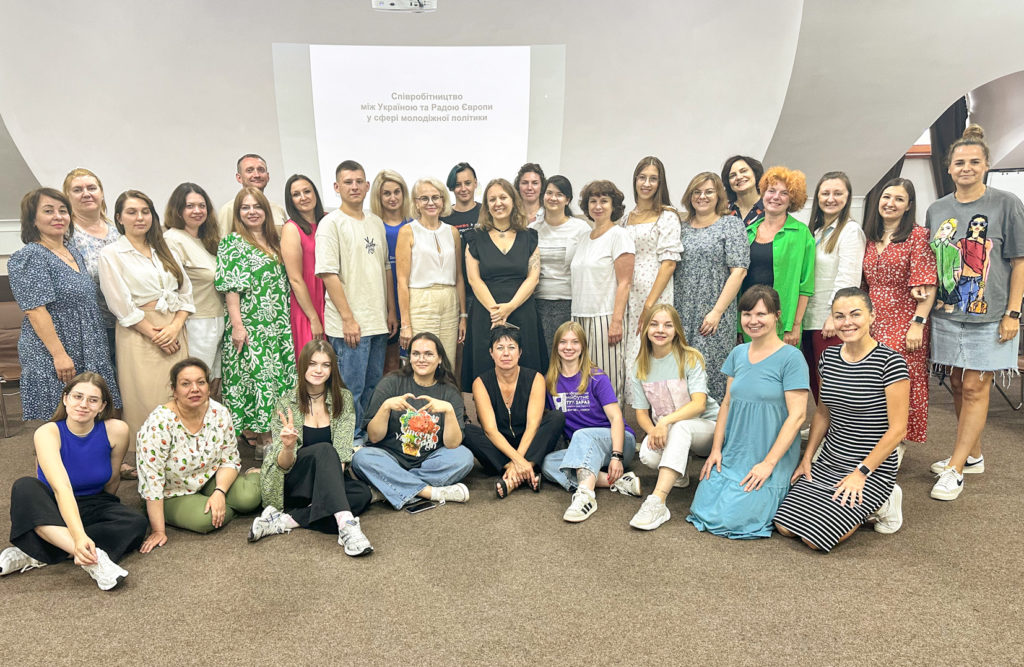Ever since the Revolution of Dignity in 2014, the European Wergeland Centre has been actively engaged in helping Ukraine strengthen their democracy. Since the full-scale invasion in 2022, the work for educating future generations in democracy and human rights has continued.

By Veslemøy Maria Svartdal
In July, 25 Ukrainian youth workers, teachers and educators gathered in Lviv to learn how to encourage youth participation and inclusion at their school or organization – with the help of the Compass manual.
The Compass manual is a tool developed by the Council of Europe (CoE) to help educators teach children and young people about democracy and human rights. It was first published in 2002 within the CoE’s Human Rights Education Youth Programme and has been in use ever since. It has been translated into 31 different languages, including Ukrainian.
All the activities in the manual are built on the main goal of the Council of Europe: to ensure respect for human rights, democracy and the rule of law throughout Europe.
The National Training Course on Human Rights Education course was organized by EWC alongside the Council of Europe, the Ukrainian Ministry for Youth and Sports, the Ministry of Education and Science of Ukraine, as well as the Center for Educational Initiatives in Lviv.
– Working with youth is an important contribution to the Ukrainian democracy, says Iryna Sabor, Head of Early Childhood and School Section at EWC, and continues: – We are proud to be able to contribute in cooperation with our partners: the Ministry of Education and Science of Ukraine, the Ministry of Youth and Sports, and the Council of Europe Office in Ukraine.

The training was conducted by a team of EWC’s trainers in Ukraine, and topics explored during the course were causes for violence and bullying in society, as well as reasons for alienation and exclusion.
– EWC has been working in Ukraine for over 10 years, explains Sabor. – We were there from the start, when the new democratic reforms were developed after the revolution of dignity, helping to renew the educational system. It is even more important for us to be working in Ukraine now, when the country is shaping its democratic response to the dramatic challenges of war.
Each training exercise had a practical and interactive component where the participants would get down on the floor to learn how they in simple and engaging ways can teach their students how to be active democratic citizens. The exercises were followed by a debriefing and an evaluation phase, letting the participants reflect on the exercises and learn from other peoples’ perspectives.

The main goal is for youth leaders and teachers to employ the same exercises with the youth in their charge when they return to their city or village.
– I did not expect such useful exercises as we did in practice, says one of the participants after the training. – I saw a lot of tools and methods that I will use in my work. In addition, I managed to communicate with the group and find partners for cooperation on human rights, decolonisation and work with young people.
– It was incredibly cool that the training was organised through activities, says another participant. – They helped us to quickly understand the training, the topics presented and the work of the exercises themselves.
The training seminar in Lviv was made up of a diverse group of people, the youngest being 18 and the oldest 54 years old. Some were teachers and educators, others youth workers working outside of the school system.
– The best part of the training was the composition of the group, says Khrystyna Chushak, Head coordinator of the Schools for Democracy Programme in Ukraine. – Participants from formal and non-formal education were brought together. Having an opportunity to listen to colleagues’ reflections on things from a different perspective was extremely valuable.

Iryna Sabor highlights the importance of including the young in strengthening the resilience of Ukraine’s democracy:
– It is critically important to work with youth so that young people are not following the path of alienation, disentanglement and radicalization, but continue to participate in democratic processes and contribute to recovering local communities, she says and continues: – The training took place during the week when Norway was marking another year since the tragedy at Utøya. It is a painful reminder of the price we pay for living in a free and inclusive society. The Ukrainian society is fighting for these values now.
In the months that followed, the participants held a number of events based on the COMPASS training. Participant Khrystyna Hataliak organised a human rights event for children in the Novoyavoriv Public Library, where the teenagers used the ‘The Power of Flowers’ and ‘Who am I?’ from the COMPASS manual. In Sumy, a similar event was held at the Romantika Youth Centre. In Dnipro, a workshop attracted youth as far away as Zaporizhzhia, where trainer Anastasia Netrebytska made us of the COMPASS manual when discussing participation.
Compass training was implemented by the Center for Educational Initiatives (Lviv) and was funded by CoE and EWC through the Schools for Democracy Programme, which is part of the Nansen Support Programme for Ukraine.
The Center for Educational Initiatives (Lviv), in partnership with the Youth Department of the Council of Europe (Strasbourg, France) and the European Wergeland Centre (Oslo, Norway), together with the Ministry of Youth and Sports of Ukraine and the Ministry of Education and Science of Ukraine, is conducting the “Compass” National Training Course on Human Rights Education with participation of young people. The National Training Course “Compass” is carried out with the expert support of the Council of Europe project “Youth for Democracy in Ukraine: Phase III”.